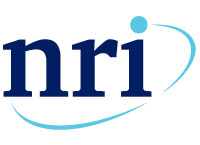Over the past year, Nuclear Risk Insurers (NRI) has partnered with carbon-analytics company, Alectro, to make big steps towards improving our environmental responsibility. The result of this is that we are delighted to announce that in pursuit of our own NRI net zero initiatives, we are now operating as a carbon neutral organisation. We have also become a signatory to the United Nations’ Climate Neutral Now initiative, a community of more than 300 organisations committed to working towards a carbon-neutral world.
Why this matters
In response to the critical threat of climate change, all around the world, nations have committed to reducing their carbon emissions in line with a target of keeping a global temperature rise below 2°C above pre-industrial levels[1]. We want to play our part in measuring and managing our emissions in line with UK national targets to ensure we pass on the planet in a good condition to future generations.
Additionally, and even closer to home, NRI’s net zero ambitions align with the industry which we service, serve and insure: the nuclear industry has delivered low carbon power, around the world, for over 60 years. As the world aims to realise its net zero targets, nuclear will continue to play a key role in enabling the transition.
Project goals
To achieve NRI’s net zero goals, we worked with Alectro to deliver the project. We wanted to:
- Conduct an in-depth analysis of all operational carbon footprint data
- Assess our own sustainability culture to make sure we were engaging in the right ways
- Create a roadmap to continually improve our footprint over time.
Mark Popplewell, Managing Director of NRI, said this about the project: “As one of the pre-eminent nuclear insurers in the world it made absolute sense to us to share the civil nuclear industries low carbon credentials and in addition, to follow the trend of insurance companies to raise their efforts around sustainability.
The steps taken so far in collaboration with Alectro, now put us in a position to confidently say we are working towards a better world and creating a more sustainable place for future generations.
NRI Net Zero Project
We used the GHG Protocol Corporate Accounting and Reporting Standard[2] as our base, and expanded it to cover as much of the voluntary emissions as we could – this meant we looked at everything from utilities use in our buildings, all the way through to our internal catering provision.
NRI’s carbon footprint for 2019 was 312 tCO2e, which worked out at 24 tCO2e per full time employee (FTE). Approximately 85% of our total emissions came from flights which contributed to this high per employee emission intensity compared to other companies who report their emissions. The two main reasons for this high value:
- We have to fly around the world for work. This is a prerequisite for our Risk Engineering survey programme and linked to our technical risk underwriting.
- A high proportion of our staff are required to fly. Whereas in larger companies, flight emissions are diluted with additional staff who are not required to fly (additional administrative and support staff).
Although there are valid reasons for the relatively high emissions/FTE intensity, we are committed to addressing the issue head-on, both by challenging the need for travel whenever possible, and by positively selecting lower impact means of travel.
The restrictions on international travel associated with the COVID-19 pandemic have of course forced us to adapt our working practices significantly during 2020. We will learn from what has worked well during this year to accelerate our ambition in respect of reducing non-essential journeys through virtual meetings and home working.
Aside from flights, we were broadly happy with our other findings, for example, our good practices in procurement from local companies, low volumes of waste generated, focus on minimising food waste, and recognising trends shifting away from red-meat consumption. However, we will continue to monitor our consumption and adapt to current trends, ensuring that our current lean processes remain so.
Overall, NRI now aims to reduce our emissions in line with the Paris Agreement, and our aligned target is to reduce emissions by 50% by 2030 from our 2018/19 base years.
This will be achieved by tracking a rolling average of emissions and annual Key Carbon Performance Indicators (KCPIs).
We will offset any remaining unavoidable emissions by using best in class emission offset projects.
NRI use offsets from The Gold Standard, and from the United Nations Carbon Offset Platform to ensure we are supporting certified projects featuring the highest levels of environmental integrity and also contributing to sustainable development.
We have offset 100% of our 312 tCO2e footprint for 2019, split between three projects in countries that support civil nuclear power.
What next?
NRI recognises that carbon credits should be used responsibly and are not a substitute for real reductions. We will therefore strive to reduce our emissions as far as is reasonably practicable to reach our goals.
By becoming a signatory to the Climate Neutral Now initiative, NRI encourages and advocates for other businesses we work with to become carbon-neutral and encourage more companies to take early climate action and act responsibly towards the planet.
If you would like to know more about NRI’s net zero activities please contact us or the Alectro team here.
